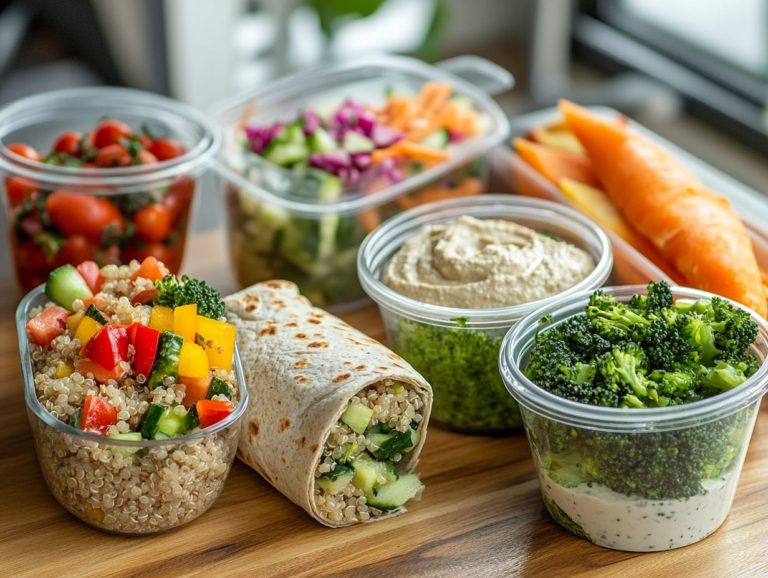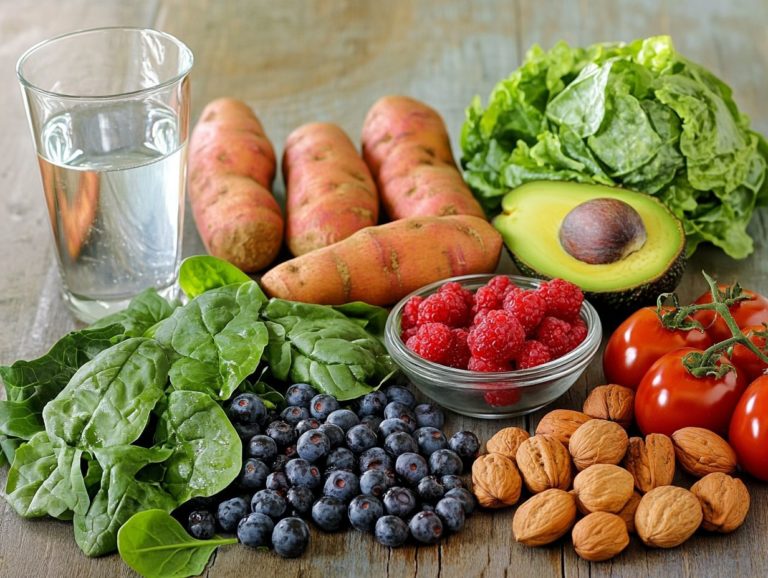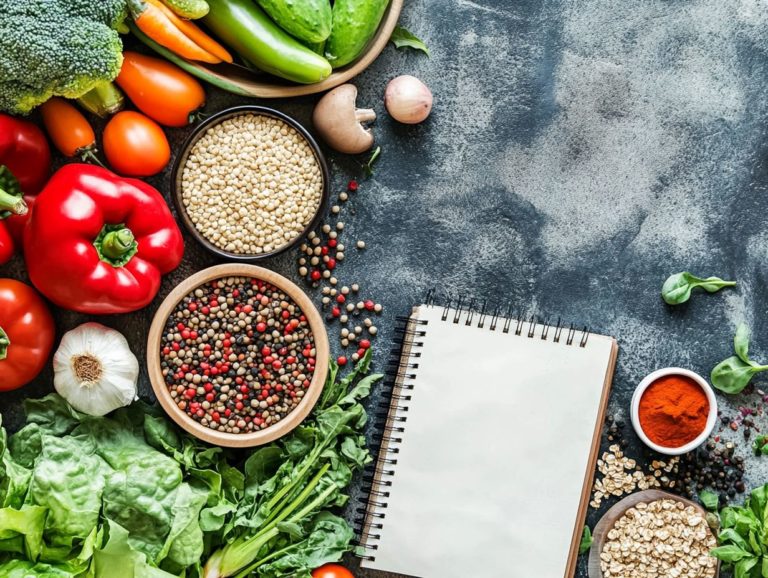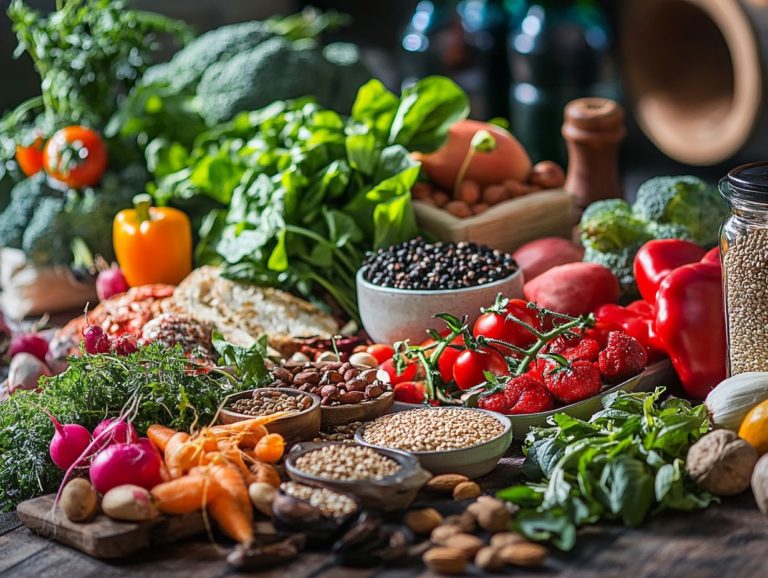Gluten-Free Eating: Myths and Facts
Understanding gluten and its health effects can be quite perplexing, especially with the abundance of misinformation out there.
This article aims to clarify what gluten is and its connection to celiac disease while dispelling common myths surrounding gluten-free eating. You ll discover the truth behind gluten-free diets, learn essential facts if you re affected, and receive practical tips for making nutritious choices.
Whether you re contemplating a gluten-free lifestyle or simply seeking a deeper understanding, this guide serves as your comprehensive resource.
Contents
Key Takeaways:
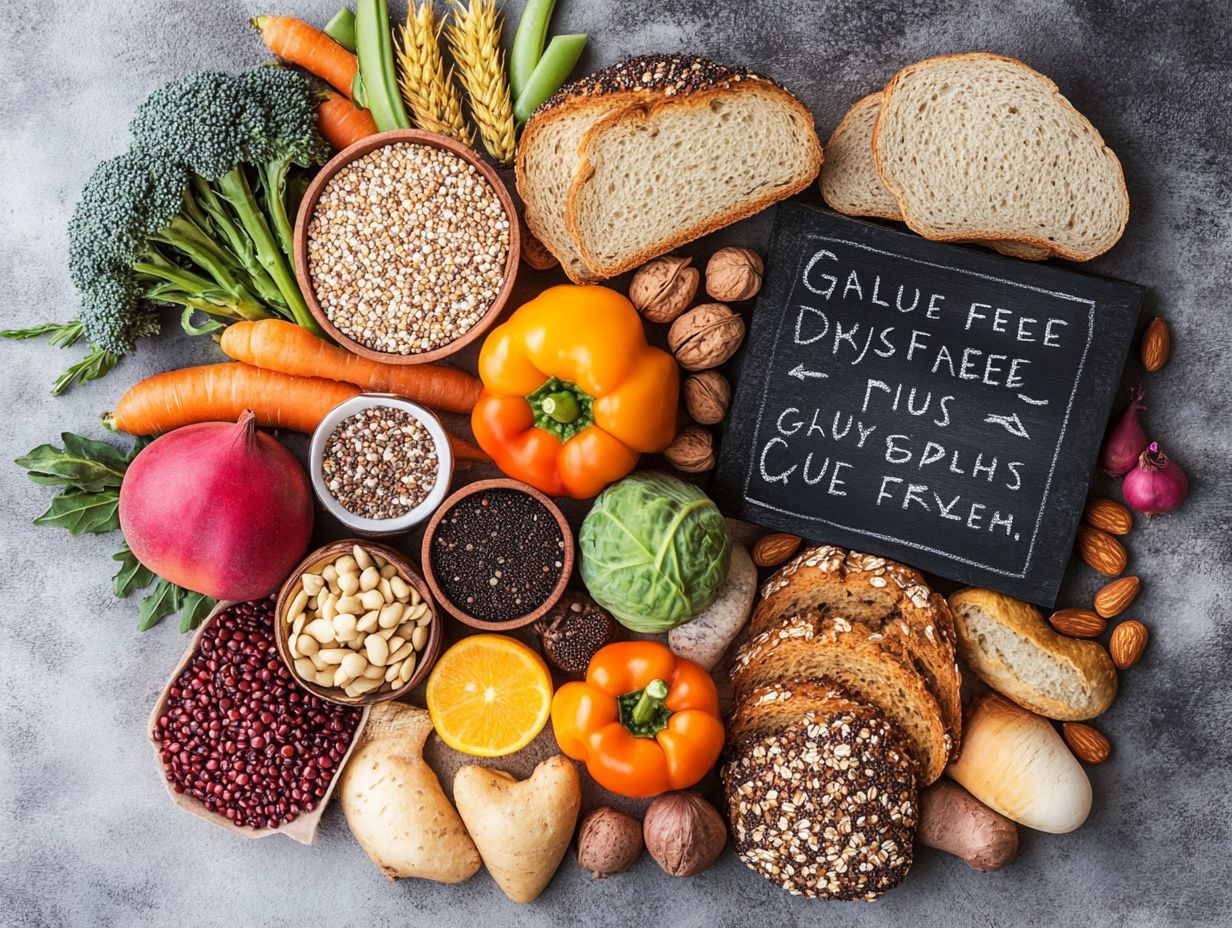
- Gluten is a protein found in wheat, barley, and rye. Celiac disease is an autoimmune disorder that causes damage to the small intestine when gluten is consumed.
- Going gluten-free is essential for those with celiac disease, but it s not a guaranteed health boost for everyone and does not automatically lead to weight loss.
- Gluten-free options can be more expensive. It’s important to make nutritious choices when following a gluten-free diet. Consult a registered dietitian for personalized advice.
Understanding Gluten and Celiac Disease
Understanding gluten and its effects on health is essential for individuals with celiac disease and gluten sensitivity conditions gaining recognition as serious autoimmune disorders impacting countless lives.
Gluten, a protein in wheat, barley, and rye, can provoke severe gastrointestinal symptoms in those with celiac disease. If not managed properly, this can lead to nutrient deficiencies and malnutrition. For these individuals, adopting a gluten-free diet is more than just a diet; it s a vital pathway to improved health and enhanced quality of life.
Esteemed organizations like the Celiac Disease Foundation, along with insights from experts at the Mayo Clinic and Beyond Celiac, underscore this important journey toward wellness.
What is Gluten?
Gluten is a blend of proteins primarily found in wheat, barley, and rye. It provides the elasticity and chewiness that many baked goods are celebrated for. This intricate protein is essential for bread-making, as it traps air bubbles created by yeast, allowing the dough to rise.
Beyond traditional recipes, gluten lurks in many processed foods, including sauces, dressings, and even snacks. For some individuals, gluten can be a source of discomfort. Gluten allergies and sensitivities may manifest as digestive issues, skin irritations, or fatigue, prompting those affected to navigate their dietary choices with caution.
They often explore gluten-free alternatives, ensuring they can maintain their well-being while still enjoying delicious meals.
What is Celiac Disease?
Celiac disease is a serious autoimmune disorder where ingesting gluten damages the small intestine, impacting nutrient absorption and overall health.
This condition occurs when your immune system mistakenly targets gluten, a protein in wheat, barley, and rye. As your small intestine becomes inflamed, you may encounter symptoms like abdominal pain, bloating, diarrhea, and fatigue.
If left unaddressed, these symptoms can lead to malnutrition as your body struggles to absorb essential vitamins and minerals effectively. Long-term consequences may include osteoporosis, anemia, and an increased risk of developing other autoimmune disorders.
If you’re facing this diagnosis, don’t wait resources are available to support you now! Organizations like the Celiac Disease Foundation provide valuable information, support, and opportunities to connect with a community that understands your journey.
Common Myths about Gluten-Free Eating
You may encounter a host of misconceptions about gluten-free eating, especially the prevailing idea that it serves as a one-size-fits-all solution. This notion can easily mislead you regarding the genuine health benefits of a gluten-free diet and its true relevance to weight loss and gluten allergies.
Myth #1: Is Gluten-Free Just a Fad Diet?
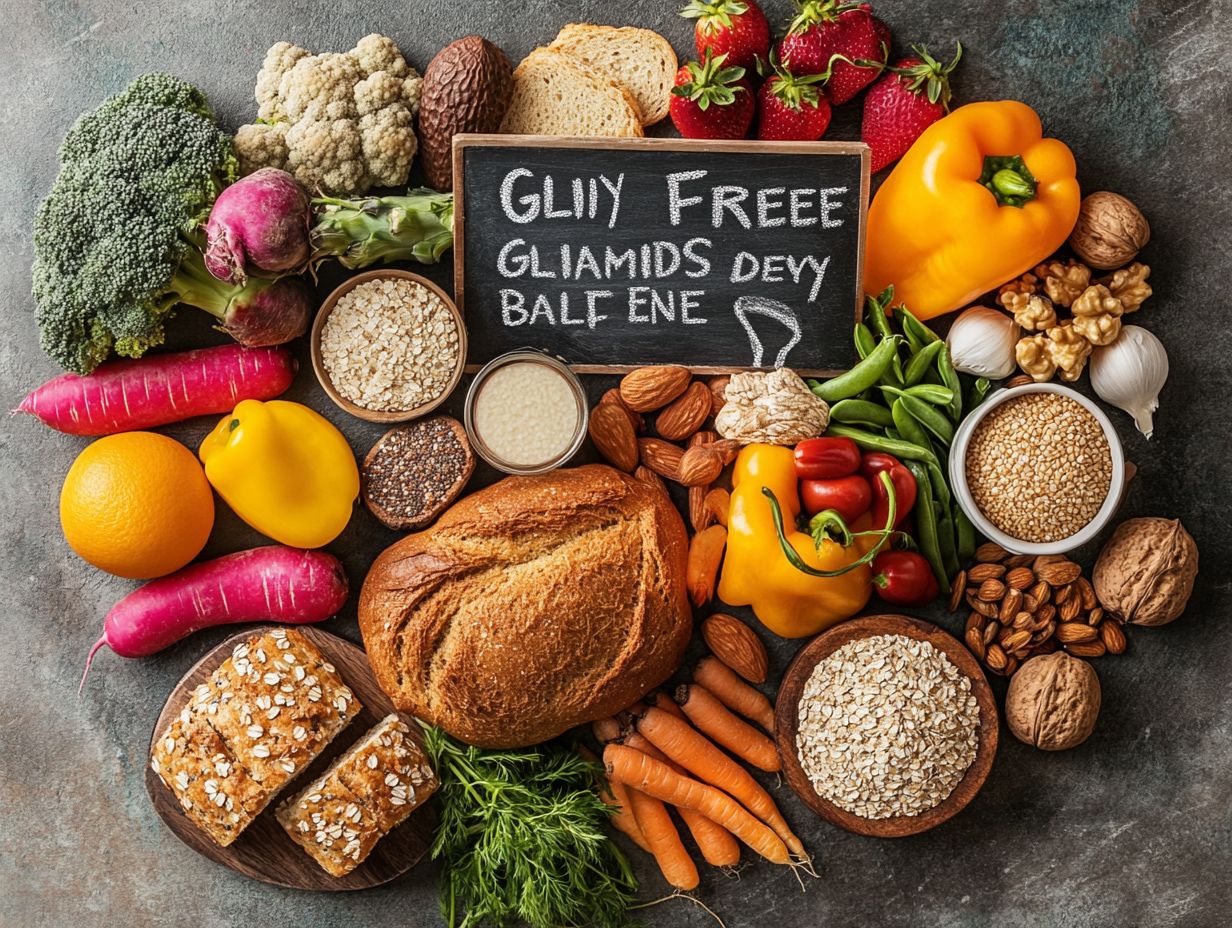
Many people mistakenly assume that gluten-free diets are simply another trend, viewing them as health fads rather than recognizing their essential role for those with gluten allergies or celiac disease.
For individuals with these conditions, a gluten-free lifestyle is a vital necessity for their health and well-being. Unlike the latest diet crazes that promise rapid weight loss or a bust of energy, a gluten-free diet is about avoiding serious medical complications, such as intestinal damage or malnutrition that can arise from gluten exposure.
While some may adopt this diet without understanding its importance, this indiscriminate approach can lead to nutritional deficiencies. Many gluten-free alternatives often lack essential vitamins and minerals.
Myth #2: Is Gluten-Free Healthier for Everyone?
Many believe that gluten-free diets are automatically healthier for everyone, overlooking the risk of nutrient deficiencies if not managed carefully.
For those with celiac disease or gluten sensitivity, these diets are crucial for managing symptoms and supporting overall health. If you don t have these conditions, choosing gluten-free alternatives doesn t ensure better nutrition. Often, these substitutes lack the essential vitamins and minerals found in whole grains and can be loaded with unhealthy sugars and fats.
Make sure to enjoy a colorful variety of foods for your best health! Prioritize a well-rounded diet that includes a mix of nutrient-rich options.
Myth #3: Does Gluten-Free Automatically Mean Weight Loss?
Many people think that adopting a gluten-free diet will effortlessly lead to weight loss, but this belief can be misleading. Many gluten-free processed products are often high in calories and lack essential nutrients.
Cutting gluten from your meals doesn t automatically set you on a path to shedding pounds. Your overall dietary choices play a significant role in effective weight management. Instead of relying on gluten-free snacks and treats, focus on whole foods think fresh fruits, vibrant vegetables, and wholesome grains that naturally fit into a balanced diet.
These options tend to be lower in calories while offering essential nutrients, promoting better satiety and sustained energy levels. By shifting your focus toward nourishing foods, you enhance your chances of achieving weight loss goals and improve your overall health.
Facts about Gluten-Free Eating
Understanding the nuances of gluten-free eating is essential for anyone with celiac disease. It s not just about avoiding gluten; it requires careful meal planning to prevent potential nutrient deficiencies.
Fact #1: Is Gluten-Free Necessary for Those with Celiac Disease?
For someone diagnosed with celiac disease, adhering to a gluten-free diet is crucial to prevent autoimmune responses that could lead to severe health complications.
These responses can damage the lining of the small intestine, impairing nutrient absorption and leading to malnutrition, anemia, and even osteoporosis over time. Just one exposure to gluten can trigger painful symptoms and long-term effects that compromise your overall well-being. Committing to a strict gluten-free lifestyle alleviates immediate discomfort and protects against serious health risks.
Stay vigilant about your food choices and ingredient labels to ensure a safe environment that supports your health.
Fact #2: Gluten-Free is Not Necessarily Healthier
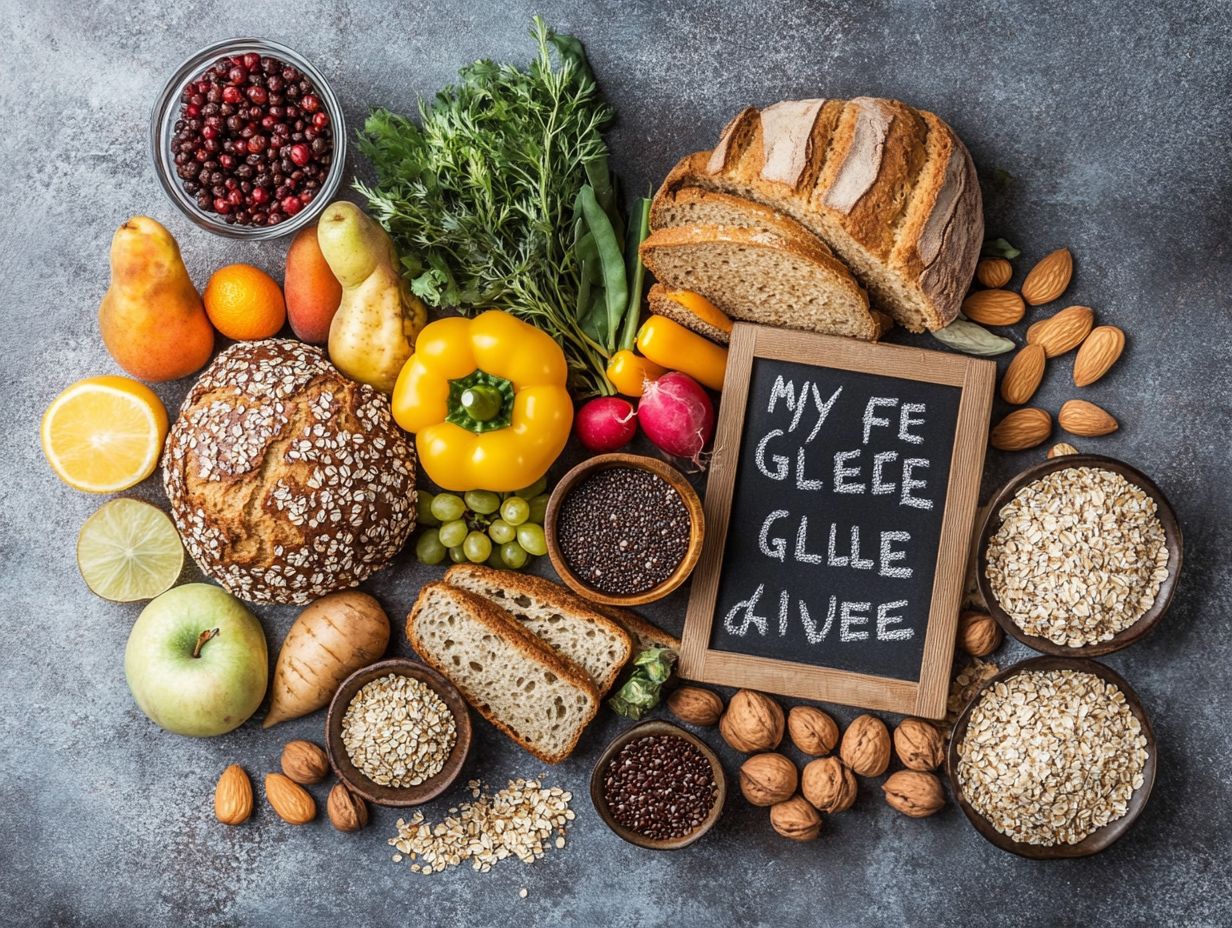
Gluten-free products are often marketed as healthier choices. However, they can lack essential nutrients.
Processed alternatives may lose fiber and other vital components. Simply swapping traditional grains for gluten-free options does not ensure a balanced diet.
Incorporate a variety of whole foods like fruits, vegetables, legumes, and unrefined grains. This is essential to receive adequate nutrients.
Being mindful of your diet helps maintain optimal health. It can also fill any nutritional gaps associated with a gluten-free lifestyle.
Fact #3: Gluten-Free Can Be More Expensive
Gluten-free eating can sometimes feel expensive. This is due to the higher prices of processed products and specialty items.
However, many cost-effective alternatives exist. Whole, unprocessed foods like fruits, vegetables, legumes, and meats can be nutritious and budget-friendly.
Plan your meals in advance to avoid overspending. Buying in bulk and focusing on seasonal produce can amplify your savings.
Tips for a Healthy Gluten-Free Diet
A healthy gluten-free diet requires thoughtful choices. Focus on whole grains, fruits, and vegetables to maintain a nutritional balance.
This approach enhances your wellbeing. It ensures you get the essential nutrients your body needs.
How to Make Nutritious Gluten-Free Choices
To make nutritious gluten-free choices, include whole grains like quinoa, buckwheat, and millet. Add a colorful mix of fruits and vegetables to your meals.
These foods are rich in vitamins and minerals. They help you feel full, making it easier to stick to a healthy diet.
For breakfast, how about starting your day with delicious oatmeal made from gluten-free oats topped with berries and nuts? For lunch, enjoy a vibrant salad with leafy greens, roasted sweet potatoes, and grilled chicken or chickpeas.
For dinner, consider stir-fried vegetables over brown rice or quinoa bowls with black beans and avocado.
Frequently Asked Questions
What is gluten and why do people avoid it?
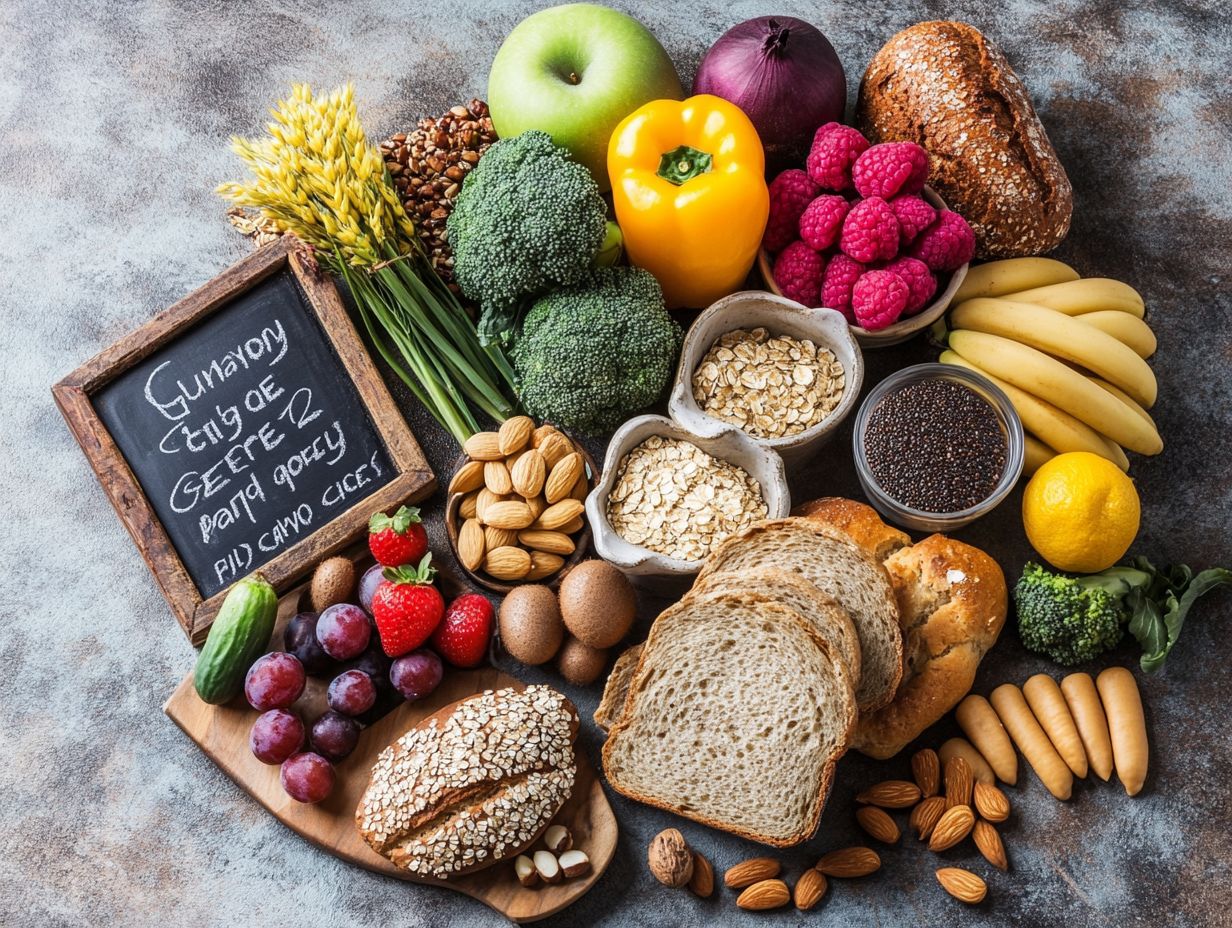
Gluten is a protein found in wheat, barley, and rye. People with celiac disease, gluten sensitivity, or wheat allergy avoid gluten to prevent digestive issues and other symptoms.
Is a gluten-free diet healthier?
Is going gluten-free really healthier? It depends. If you have celiac disease or gluten sensitivity, a gluten-free diet is necessary for better health. However, if you do not have any gluten-related conditions, there is no evidence that a gluten-free diet is healthier.
Can you lose weight by going gluten-free?
Not necessarily. A gluten-free diet does not guarantee weight loss. Eliminating gluten may lead to weight loss if you replace gluten-containing foods with healthier options, but it can also lead to weight gain if you rely on processed gluten-free products.
Are all gluten-free products the same?
No, they are not all the same! Many gluten-free products are highly processed, packed with sugar, unhealthy fats, and additives. Always check the labels.
Choose whole food-based gluten-free options for the best health!
Is it safe to eat gluten-free at restaurants?
It depends on the restaurant and their understanding of gluten-free options. Ask your server about their gluten-free offerings and how they ensure no cross-contamination in the kitchen.
Can you have non-celiac gluten sensitivity?
Absolutely! Non-celiac gluten sensitivity can cause discomfort just like celiac disease. It’s estimated that around 6% of people experience this, so knowing your body matters!


